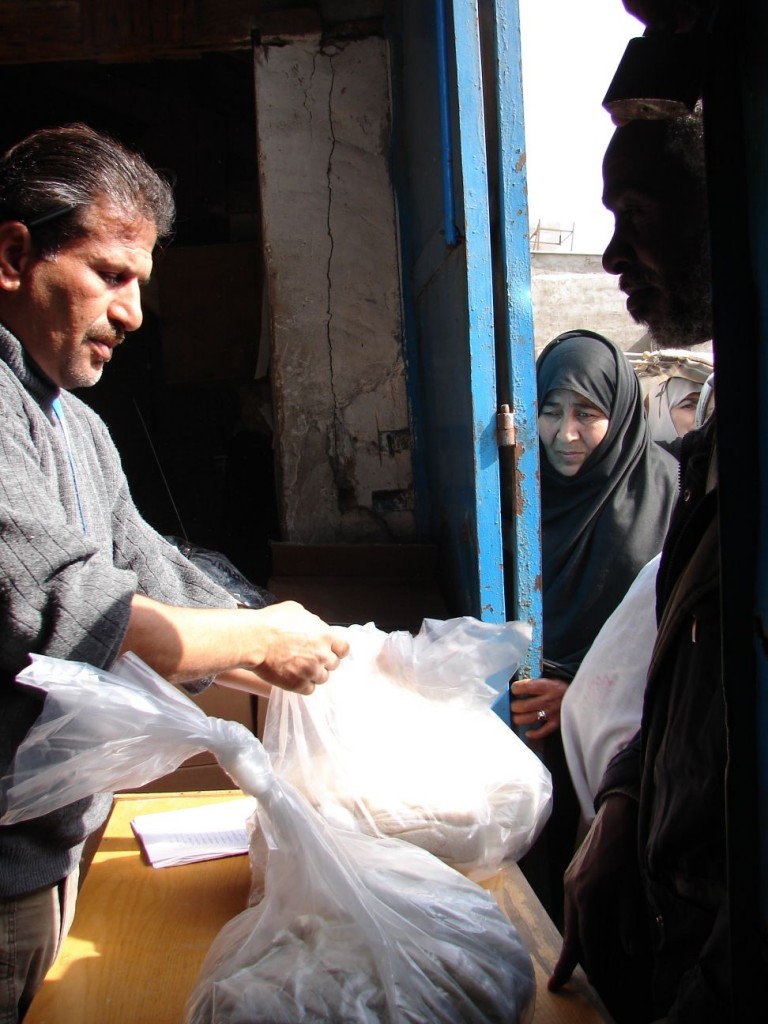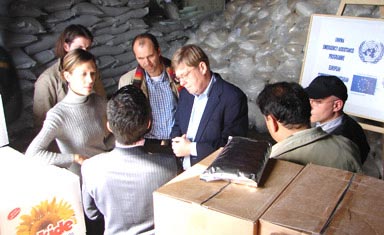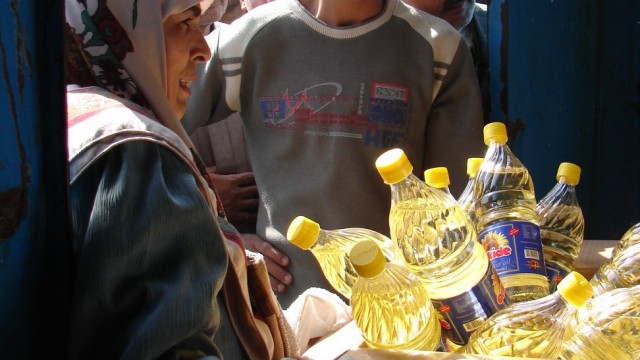The closure hits civilians hard: goods can not be imported or exported, jobs are lost, the market has collapsed, poverty is striking 8 people out of 10.

Photo : EC/ECHO/Daniela Cavini
GAZA CITY – There is no pushing or shouting, but tension is high as Najua Abu Sultan nears the counter, eyeing the wheat flour, cooking oil, sugar, rice, milk and tuna fish. The Palestinian refugees jostle nervously to collect their quarterly rations. As long as flour and rice are in the cupboard, people can endure the miserable reality of daily existence.
There are hundreds in the queue. “We have all become destitute,” sighs Najua.
86,000 vulnerable people are being helped by the UN’s Relief and Works Agency (UNRWA) in the Gaza Strip, and food distribution is part of everyday life. Today, the operation is watched closely by Steffen Stenberg, Director of Operations in the European Commission’s Humanitarian aid department (ECHO). He has come from Brussels to see with his own eyes the reality of the situation on the ground. The Commission is a major provider of international assistance for the Palestinian refugees. In four years, more than €500 million has been channeled to UNRWA to keep their programmes running in the Palestinian Territory.
The Gaza border closure hits civilians hard: labourers are prevented from crossing into Israel and Egypt; goods cannot be imported or exported; prices are skyrocketing; the market has collapsed and one in two adults is left without any form of income. Poverty has increased dramatically with almost 80% of Gazans now living on less then €1 a day. Purchasing power has fallen creating a category of “new poor” while the most vulnerable – the chronically ill, the elderly and disabled – now face abject poverty.

Photo : EC/ECHO/Daniela Cavini
UNRWA staff briefed the ECHO Director on the challenges they were facing getting the food to those that need it. Because of the blockage at the frontier, this particular distribution was taking place later than planned. They had been unable to obtain bags for the sugar and flour so that people could carry it home. In fact, only small quantities of food and medicines are actually getting in – not enough to meet the demands of 1.5 million people. Humanitarian stocks in warehouses are running low.
“We depend on this aid” continues 40-year old Najua. She has spent her whole life as a refugee, moving from one temporary shelter to another. She has nine children. Her two older boys, 17 and 15, suffer psychological problems and have dropped out of school. The whole family is squeezed into two rooms with a leaking zinc roof, an overflowing sewage system and almost no access to daylight. “They say I might get help to improve our shelter, but no building materials are allowed in. We have seen hard times before, but this is the worst yet.
We can’t help each other anymore. Our kids go to school on empty stomachs. Tell me, why are they being punished?”
Daniela Cavini
ECHO Regional Information Officer – Amman

